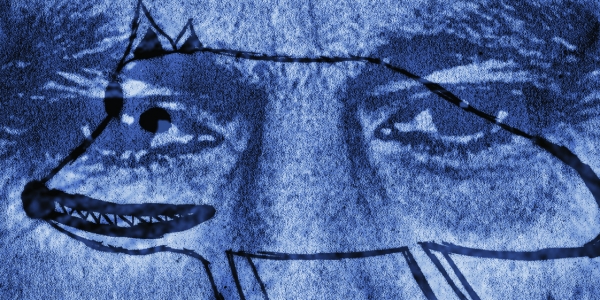A mysterious and powerful work, Karen Corbett’s The Orphanage of the Animals is a theatrical exploration of the ethical portrayal of childhood trauma. Determined to eschew any objectification of victims, Corbett’s acuity and sensitivity creates a beautifully affecting piece whose impressionistic approach weaves a dark magic. Non-linear, fragmentary and measured, this PhD project is a finely realised work of theatre. Catherine Samsury directs and the original music is by Nela Trifkovic.
The set is crowded with cardboard boxes; the cast use these as hiding spots for themselves and caches for sacred objects. As well they stand in for obstacles to be gotten around; the claustrophobic set allows for little movement. The strength of the work comes through its representation of childhood, the dynamics between a group of kids and the menace from the world outside. Disassociation and imagination take traumatised kids into a world of their own making. The writing is utterly stunning, the language veering tensely from acutely realised child-speak and a semi-made up infant language to the chillingly functional English of a third world woman trying to sell a baby.
I wasn’t so convinced by the tittering chorus of harpies, the Chorus of The Mothers, the exaggeration of this element seemed to cheapen the overall effect of the work, their indifference to their children less moving than might be the case if they weren’t so stylised. Some of the vocals are occasionally off-key. Having a dig at ‘café culture’ comes across as tired these days; we all drink coffee, this no longer clearly marks a certain type of person. Francesca Waters is the standout performer of the show as KDS and Susan Bracewell as Crow and the Asian baby-seller deserves a mention. Jasper Bagg plays a deeply sinister yet confused and troubled Wolf and Russell Walsh’s damaged infantilised Dog is memorable. Corbett gives herself a smallish role as Nik. The play is deliberately opaque when it comes to conventional characterisation and the individuals are trapped within themselves until the end, which makes for a degree of frustration when it comes to engaging with them; there is a tension in the dynamic between audience and performers, as though you’re waiting for something, an sensation which serves the themes of the work perfectly. Masterful theatre.
BY LIZA DEZFOULI







